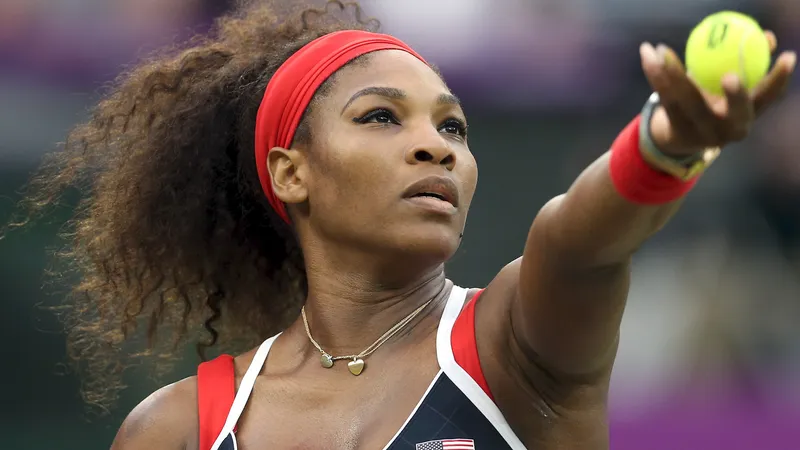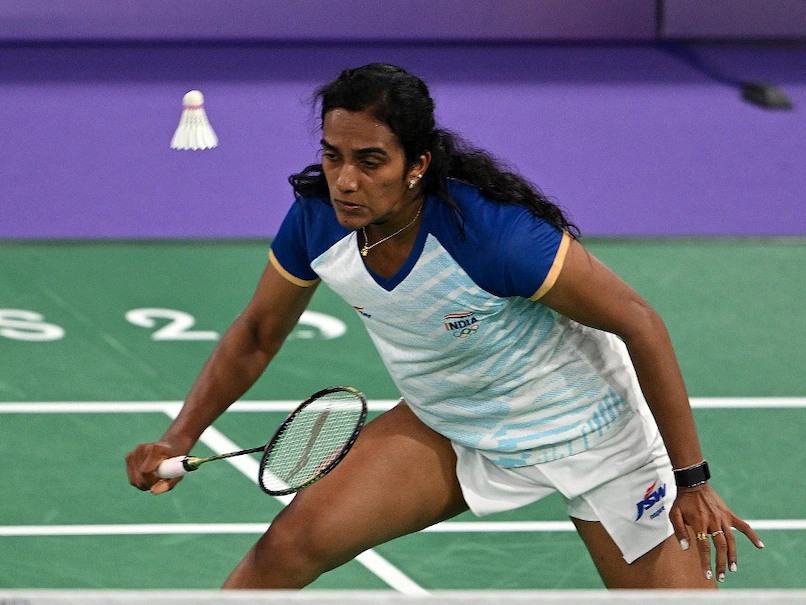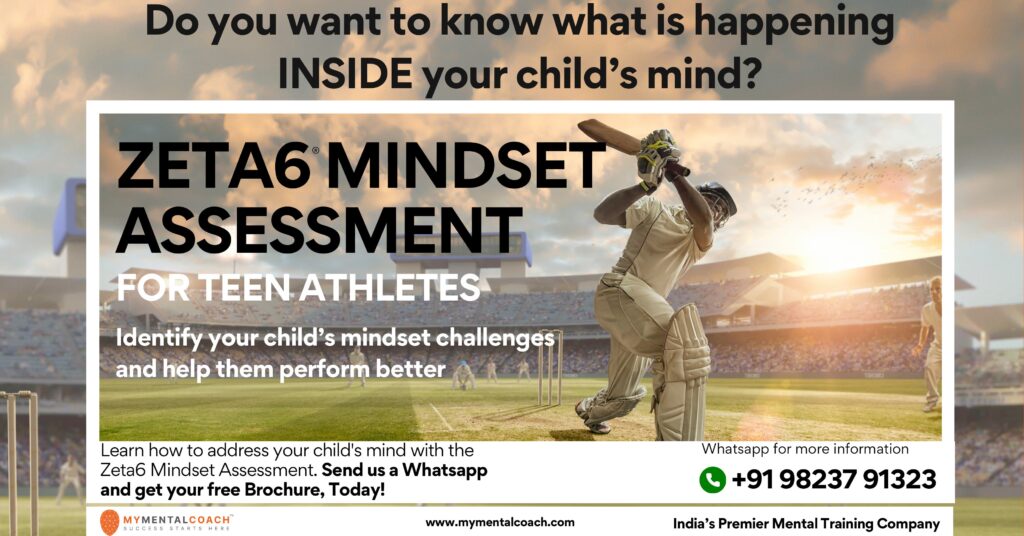Do you feel those butterflies in your stomach while you are just about to step on the field? Have you ever had visuals or nightmares about messing up a crucial play right before a big game? Do you have any lucky routines or rituals to help calm your nerves before the competition?
While anxiety is common for athletes, MyMentalCoach believes it can be beneficial in the right amount. It can fuel motivation and enhance performance. However, anxiety becomes problematic when it hinders an athlete’s ability to perform. This can manifest in difficulty making decisions, or physical symptoms like increased heart rate and sweating.
This article explores anxiety in athletes and its impact on performance. Let’s also look at a few of the very famous elite athletes who have faced problems with anxiety.
What is Sport Anxiety? Sport Anxiety Symptoms
Sports anxiety, also known as athletic performance anxiety, is a type of anxiety that affects athletes of all levels. It involves intense fear, worry, and apprehension about performing in sporting situations. This can manifest in various physical and mental ways, impacting an athlete’s performance and enjoyment of the sport.
Watch this video titled, “Overcoming Sport Anxiety: Tips and Strategies for Athletes” to get a better understanding of what is sport anxiety and also learn a few tips to manage it.
Symptoms of Sports Anxiety:
Physical:
- Increased heart rate and breathing
- Sweating
- Muscle tension and shaking
- Dizziness or lightheadedness
- Stomach upset and nausea
- Fatigue or lack of energy
- Headache
Mental:
- Excessive worry about making mistakes or failing
- Difficulty concentrating and focusing
- Negative self-talk and doubts about abilities
- Fear of judgment or criticism
- Feeling overwhelmed by pressure and expectations
- Avoiding competition or practicing less than usual
- Loss of confidence and motivation
Impact of Sports Anxiety:
- Reduced Performance:
Athletes may make more mistakes, have slower reaction times, and need help to perform their skills effectively.
- Decreased Enjoyment:
Anxiety can take the fun out of sports, leading to frustration, burnout, and even a desire to quit.
- Physical Health Problems:
Chronic anxiety can take a toll on physical health, leading to sleep problems, a weakened immune system, and an increased risk of injuries.
It’s important to note that not all athletes experience sports anxiety in the same way. Some may only experience mild symptoms in certain situations, while others may have more severe and lasting anxiety.
With that being said let’s look at a few famous athletes who faced anxiety in the course of their game, this will help you get comfortable with the fact that anxiety is common and an athlete can overcome it if they want.
“You don’t have to control your thoughts; you just have to stop letting them control you.” – Dan Millman
Famous Athletes with Performance Anxiety
Despite their seemingly superhuman abilities, even the most celebrated athletes can struggle with performance anxiety. The pressure to win, the fear of failure, and the intense scrutiny can trigger crippling anxieties that threaten to derail their careers. But these athletes, through sheer determination and the right tools, have managed to overcome their anxieties and achieve greatness. Here are a few inspiring examples:
Michael Phelps (Swimming)
The most decorated Olympian of all time, Phelps famously battled anxiety and depression throughout his career. He credits mindfulness techniques like meditation and visualization for helping him focus on the present moment and manage his anxieties.
Simone Biles (Gymnastics)
Biles stunned the world by prioritizing her mental health at the 2020 Tokyo Olympics, withdrawing from competitions to address her anxieties. This brave decision sparked a global conversation about the importance of mental well-being in athletics.
Serena Williams (Tennis)
One of the greatest tennis players of all time, Williams has openly spoken about her struggles with anxiety and panic attacks. She credits therapy, breathing exercises, and a strong support system for helping her manage her anxieties and dominate the court.
These are just a few examples of the many athletes who have overcome performance anxiety to achieve greatness. Their stories remind us that such challenges are nothing to be ashamed of and that even the most accomplished individuals need help and support. By openly sharing their struggles, these athletes help to break down the stigma surrounding anxiety and inspire others to seek help if they need it.

“Anxiety and stress are signals that you care deeply about what you’re doing. Use them as fuel, not as barriers. Channel the energy into focus, and you’ll transform pressure into performance.”
Why do Athletes Struggle with Anxiety?
There are several reasons why athletes, who seem like paragons of physical and mental strength, can struggle with anxiety. Here are some key factors:
Performance Pressure
Athletes face immense pressure to perform, from coaches, parents, teammates, and even themselves. This can lead to a fear of failure and anxiety about not meeting expectations.
Fear of Injury
Injury can sideline an athlete and derail their progress. This fear can heighten anxiety, especially during training or intense competition.
Competition and the Spotlight
Competing against talented peers and being under the scrutiny of spectators can trigger overwhelming anxiety, especially for athletes sensitive to social pressure.
Perfectionism
Many athletes strive for flawless performances, setting unrealistic expectations that can lead to frustration and self-doubt, fueling anxiety.
Personal Factors
Underlying anxieties unrelated to sports, such as social anxieties or generalized anxiety disorder, can spill over and affect athletic performance.
Biochemical factors
Some athletes may have a predisposition towards anxiety due to genetics or neurochemical imbalances.
Unhealthy Coping Mechanisms
Resorting to unhealthy coping mechanisms like substance abuse or avoiding competition altogether can exacerbate anxiety in the long run.
It’s important to remember that athletes are individuals with varying personalities and mental makeup. Their personal experiences, upbringing, and support systems also play a role in how they experience and manage anxiety.
Furthermore, the type of sport can also influence anxiety levels. Individual sports with high pressure and unpredictable situations, like golf or gymnastics, tend to trigger more anxiety compared to team sports with shared responsibility and support.
Understanding the reasons behind athletes’ anxiety is crucial for creating supportive environments, developing effective coping strategies, and fostering mental well-being alongside physical conditioning.

How can Athletes Reduce Anxiety?
Athletes don’t have to be paralyzed by pre-game jitters! Here are some unique and practical strategies to manage anxiety and unleash your inner champion:
Pre-Game Rituals
- Power Pose Party:
Strike a confident pose (like Wonder Woman!) for 2 minutes before a competition. Research shows it boosts testosterone and reduces cortisol, the stress hormone.
- Sensory Soothing:
Create a personalized pre-game playlist with calming nature sounds or upbeat music that gets you pumped. Aromatherapy with lavender or peppermint can also ease tension.
- Visualization Vortex:
Close your eyes and visualize yourself executing your skills flawlessly. See yourself crossing the finish line, sinking the winning shot, or acing that trick. Make it vivid and repeat it like a mantra.
Mindful Movement
- Breath Box Focus:
During practice or warm-up, focus on your breath. Inhale for 4 counts, hold for 4, exhale for 8, and repeat. This simple technique anchors you in the present and calms the mind.
- Progressive Muscle Relaxation:
Tense and release muscle groups one by one, starting with your toes and working your way up. This releases physical tension and helps quiet mental chatter.
- Body Scan Meditation:
Take a mindful journey through your body, noticing any sensations without judgment. This brings awareness to your physical state and promotes mental calmness.
Positive Psychology Power
- Gratitude Game:
Before a competition, write down 3 things you’re grateful for, related or unrelated to sports. This refocuses your energy and promotes positive emotions.
- Affirmation Arsenal:
Craft personalized affirmations like “I am prepared,” “I trust my skills,” or “I deserve to win.” Repeat them like a mantra to combat negative self-talk.
- Visualization Victory Lap:
After a successful performance, take a mental victory lap. Savor the feeling of accomplishment, visualize the journey, and acknowledge your effort. This builds confidence and reinforces positive patterns.
Teamwork Makes the Dream Work
- Buddy System:
Pair up with a teammate who understands your anxieties. Share pre-game rituals, offer encouragement, and celebrate each other’s successes.
- Coach Confidential:
Talk to your coach about your anxiety. They can provide personalized support, suggest strategies, and adapt training to manage your stress levels.
- Seek Support Outside the Field:
Talk to a mental training coach who can equip you with advanced coping mechanisms and help you address underlying causes of anxiety. MyMentaCoach specializes in this area of work and can help you with your anxiety. Contact us now to get your session booked.
Read this article by VeryWellMind titled, “How to Handle Performance Anxiety as an Athlete” to understand Performance Anxiety completely.
Experiment, find what works best for you, and don’t be afraid to ask for help. With the right tools and support, you can turn nerves into fuel and conquer your athletic dreams!
But let’s be honest, reading about anxiety management is one thing, applying it in the heat of competition is another. There are two main hurdles: identifying the right strategies and developing them into habits. Without consistent practice, these tools won’t be readily available when you need them most – in the game!
That’s what MyMentalCoach does; we help you first identify what works best for you and later on we help you bring those strategies into practice.
You can get a personalized mental training session with our experienced mental training coach. Book yours today by calling or WhatsApping at +91 9823791323.
You can also download our free E-book, which gives more information about Pre-game Anxiety in Athletes.
“The greatest weapon against stress is our ability to choose one thought over another.” – William James
Bottom Line
Remember, champions are forged in the fire of competition, and anxiety is just another ember on your path to greatness. The butterflies in your stomach aren’t a sign of weakness, they’re the wings that lift you to victory.
So breathe deep, embrace the challenge, and trust the magic of your talent. With every hurdle you clear, and every doubt you conquer, you build an unshakeable belief in yourself. This is your arena, your playground, your chance to paint your legacy in sweat and triumph. So step onto the field, face the fear, and unleash the champion within. The world, and your potential, are waiting.


